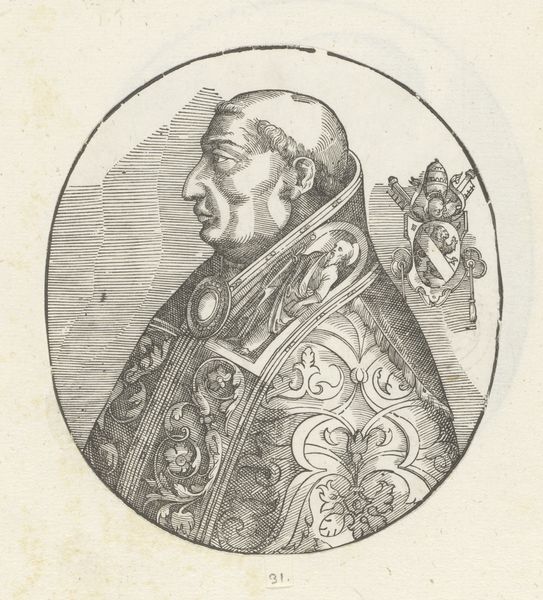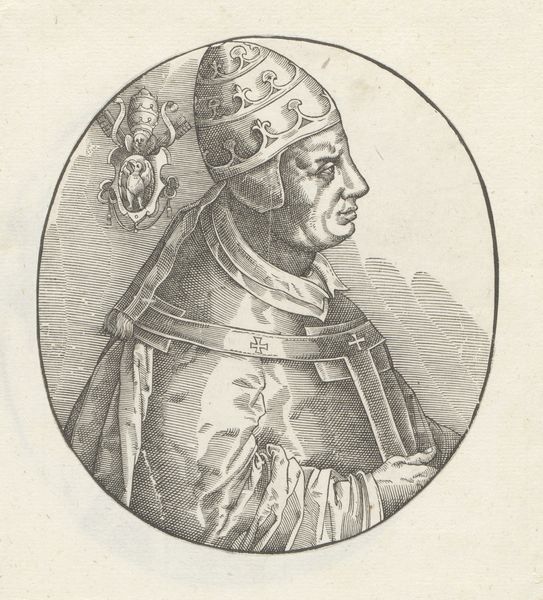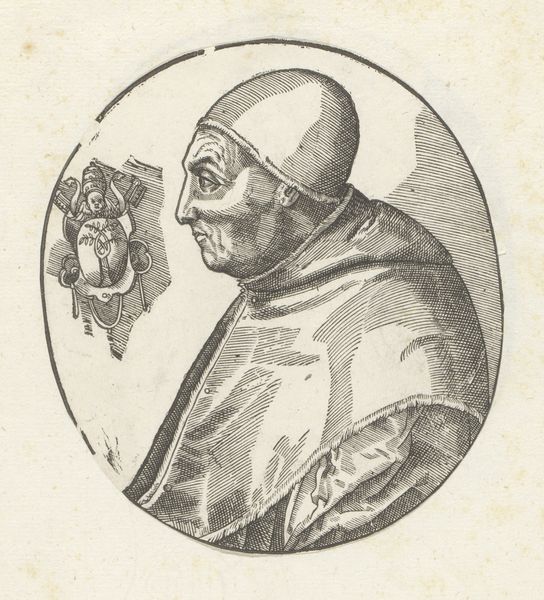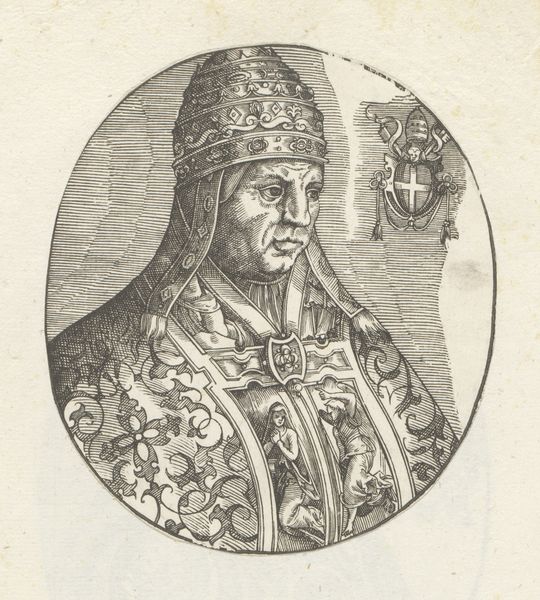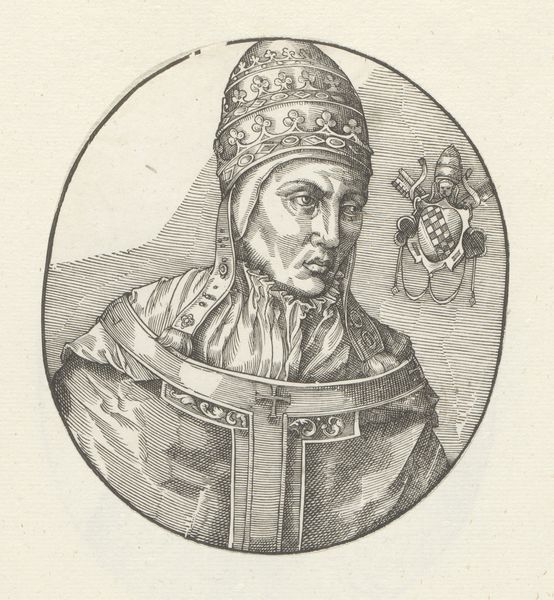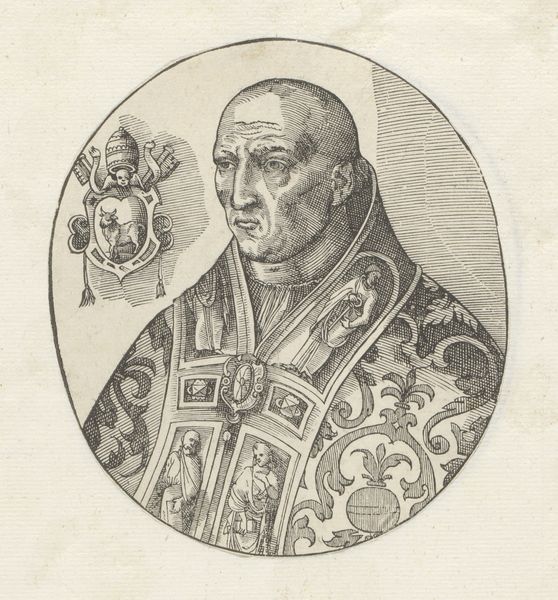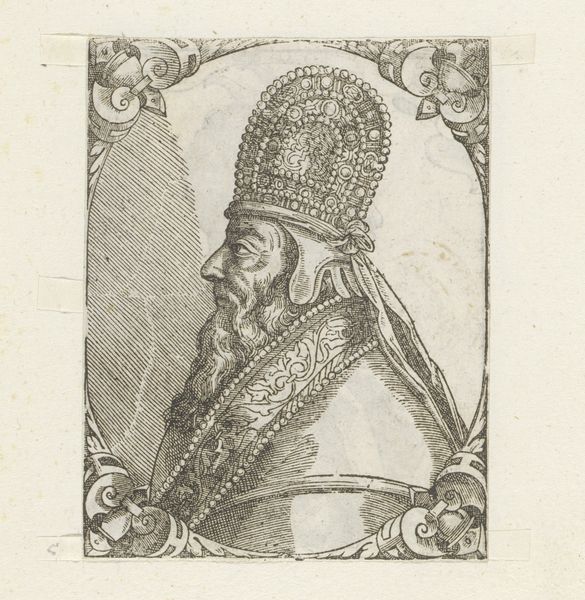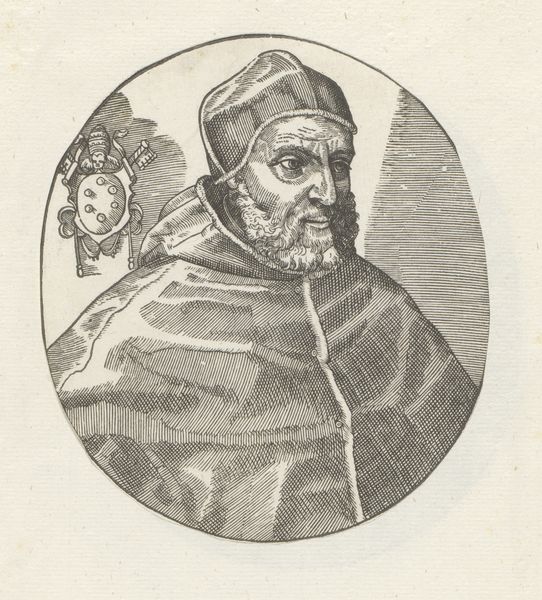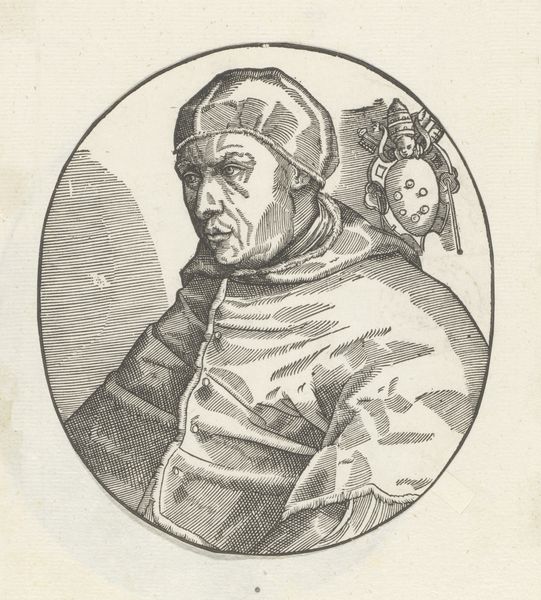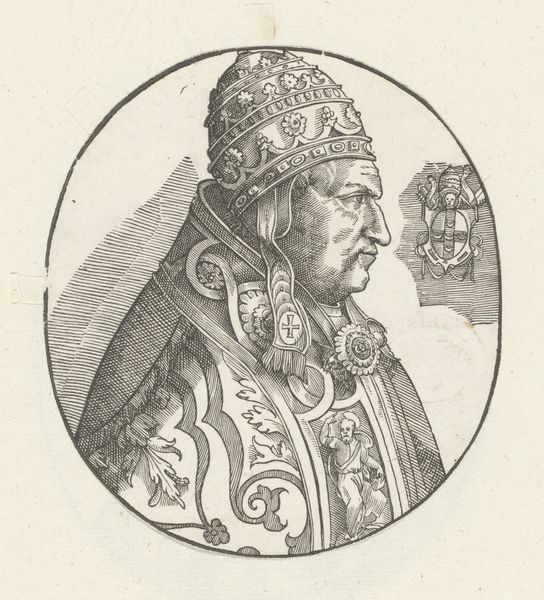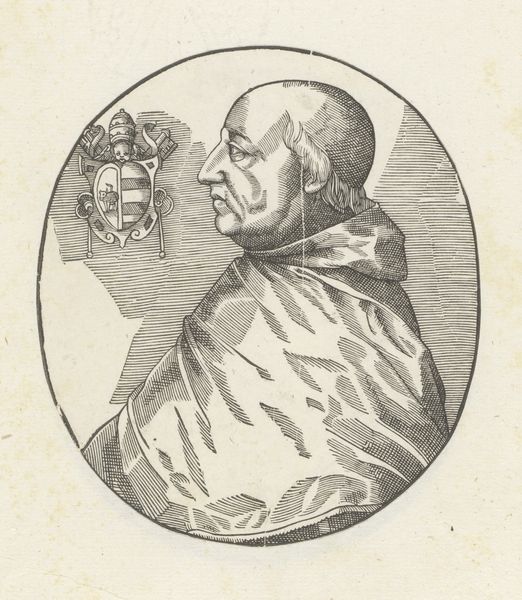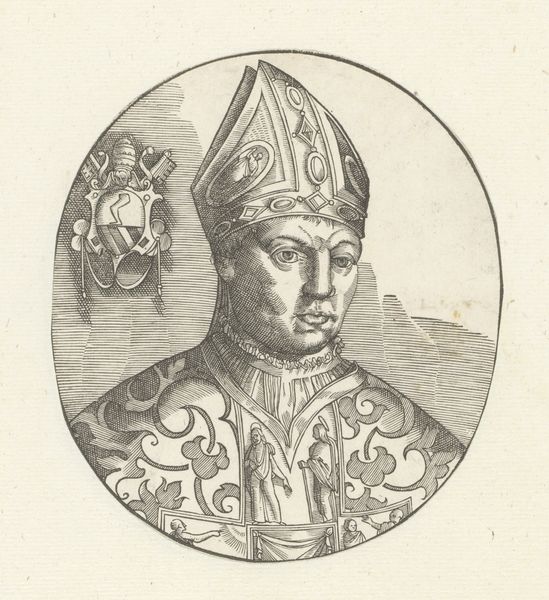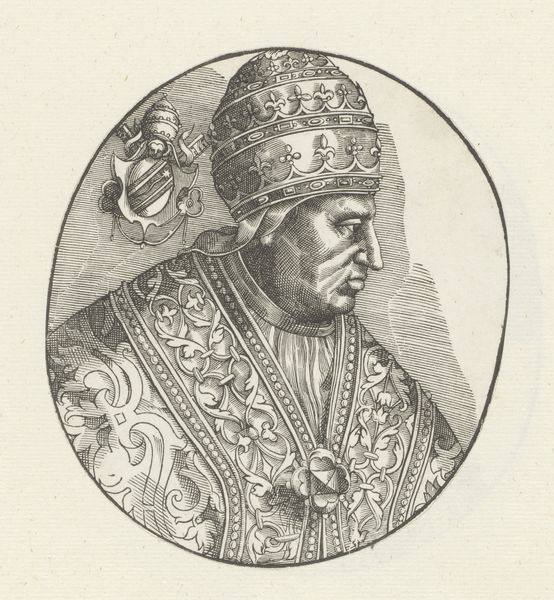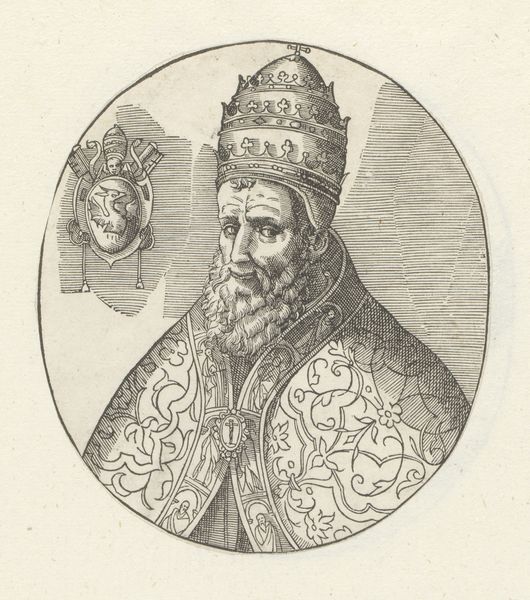
print, engraving
#
portrait
# print
#
old engraving style
#
mannerism
#
history-painting
#
engraving
Dimensions: height 124 mm, width 112 mm
Copyright: Rijks Museum: Open Domain
Curator: This engraving, dating from somewhere between 1549 and 1573, is titled "Portret van paus Pius III"—"Portrait of Pope Pius III." The artist is anonymous, adding another layer to its mystique. Editor: Right. At first glance, I'm struck by how...clinical it feels. Very detailed, very precise, but somehow lacking warmth. Like a photograph but done with meticulous lines. The gaze of the pope is quite severe too. Curator: Yes, the print embodies aspects of Mannerism, visible in the stylization and the meticulous detail. It also speaks to broader issues of representation of power and authority during that time, the Church's influence being inescapable. Editor: He’s wearing that huge decorated mantle. I feel like there are stories woven into that fabric. Are those miniature scenes playing out on his shoulders? I bet it took someone ages to render all that texture. Curator: Precisely. The depictions are thought to contain significant iconography relating to his papal reign. The overall effect really places Pius within a tradition of powerful leaders carefully constructing their images through portraiture. How does this specific approach impact your perception? Editor: I think there’s a tension. On one hand, the detail screams “importance” and permanence. On the other hand, there is this unsettling quality - almost ghost like. You are reminded that time sweeps away everything, even papal authority. He's fixed in this circle, yet gone. The flatness kind of emphasizes that. Curator: I see what you mean. The stark contrast, and perhaps the limitations of the engraving process itself, render him both present and distant. Thinking about the visual rhetoric, how does this contrast relate to contemporary issues of legacy? Editor: Good question! Maybe it reveals the paradox of power—the attempt to control a narrative forever while facing eventual dissolution. This piece prompts questions about who gets remembered and how their story is told…or in this case, etched in lines. I appreciate how its stillness triggers so many different trains of thought. Curator: Absolutely. It invites a reflection on the shifting sands of history and memory itself. Editor: Indeed. It’s not just a portrait of a pope; it’s a portrait of the ephemeral nature of power itself, caught in a delicate web of lines.
Comments
No comments
Be the first to comment and join the conversation on the ultimate creative platform.
